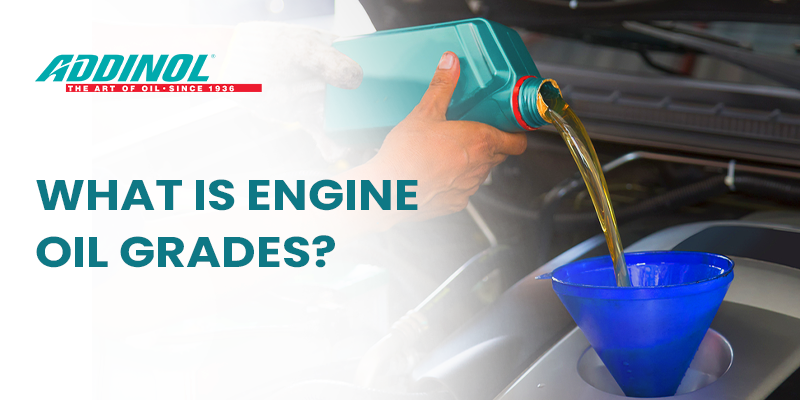Imagine a sleek luxury car poised on the edge of adventure, its engine purring with the assurance of power and refinement. The excitement is tangible as the driver’s hand hovers over the ignition, poised to unleash the vehicle’s potential. However, before this automotive masterpiece takes the spotlight, a crucial decision lingers beneath the surface—the choice of engine oil.
For luxury cars, where every detail holds significance, selecting the best engine oil for a car goes beyond routine maintenance; it’s a strategic move that can profoundly influence your vehicle’s core performance. But why should something as seemingly mundane as picking engine oil command your attention? The answer lies in the mechanics of luxury cars and the direct impact that the right oil can have on your investment. Car Engine oil is more than mere lubrication; it’s a performance enhancer that safeguards your investment. Whether you’re seeking peak performance, cost-effective solutions, or a balanced fusion of attributes, these insights will guide you toward the best engine oil that seamlessly complements your automotive journey.
This comprehensive guide serves as your roadmap to engine oil selection. We break down the technicalities of viscosity, the importance of manufacturer recommendations, the advantages of high-performance oils, and the considerations between synthetic and conventional blends. As you explore this guide, you’ll gain insights into a wide array of options for choosing the best engine oil in India.
So pick up your beverage and keep reading!
Things You Need to Know Before You Change Oils for Your Car
The choice of engine oil plays a strategically significant role. Your decision resonates through your car’s performance and engine life. Check these pivotal factors before you choose an engine oil for your luxury car:
- Know Your Car’s Specifications:
The foundation of choosing automotive lubricating oil lies in understanding your car’s make and model. As modern vehicles incorporate advanced engines designed for efficiency, oil formulations have evolved to keep up. Precision is vital—knowing your vehicle’s specifications enables you to identify the ideal oil that complements its engineering. - Adapt to Driving Conditions:
Adapting your choice to the driving conditions you encounter is another factor worth looking at. Let it be the scorching heat or freezing cold, smooth roads or rugged terrains, these factors impact your engine’s stress levels. Tailoring your oil selection to these conditions ensures optimal performance. Extreme temperatures call for specific viscosity characteristics that protect your engine’s well-being. - Mineral vs. Synthetic Oils:
Base oil constitutes a significant portion of an oil’s composition, highlighting the gravity of this decision. Each variant has its strengths and limitations, necessitating alignment with your car’s requirements and driving style. Made from refined petroleum products, mineral oils are thicker and suited for older engines without turbos. Good for moderate climates but needs more frequent changes. Created with synthetic components, synthetic oils are perfect for high-performance engines. They handle heat well and need fewer changes. Semi-synthetic oils are a blend of mineral and synthetic oils, offering balanced benefits without drawbacks. - Decoding Viscosity:
Deciphering the alphanumeric codes on oil packaging reveals the secret of viscosity grade. Viscosity—resistance to flow—is vital for engine performance. Understanding the two numbers, one ending with ‘W’ for Winter and the other indicating operational temperature flow, empowers you to select oil tailored to your engine’s demands. Thin oils ensure smooth cold starts, while thicker oils maintain strength in elevated temperatures. - Align with Industry Standards:
Examining oil labels reveals acronyms like API, ACEA, and ILSAC—symbols of industry standards. These benchmarks delineate the parameters that premium engine oils must meet or exceed. They provide insights into oil quality and effectiveness. API and ACEA standards, widely recognized, serve as guiding principles. Opting for oil aligned with these benchmarks ensures your engine’s health. - Follow Manufacturer Recommendations:
Manufacturer recommendations act as the conductor’s baton. These guidelines, often found in your vehicle’s manual, offer valuable insights into the type of engine oil that best suits your car’s nuanced mechanics. Adhering to these recommendations ensures your vehicle operates as intended, optimizing performance, efficiency, and longevity. Ignoring these guidelines can hamper performance and lead to warranty issues. - Prioritize Long-Term Value:
Luxury cars are investments in enduring excellence. Thus, when selecting engine oil for your luxury vehicle, consider the long-term impact. Opting for high-quality automotive lubricating oil might come with a slightly higher cost, but they often result in lower maintenance expenses, fewer oil changes, and extended engine life. Investing upfront in premium engine oil is a wise choice that pays off in sustained performance and minimizes the potential for expensive repairs. By choosing engine oil that emphasizes long-term value, you’re not just maintaining your luxury car’s performance—you’re securing its future.
The choice of engine oil holds a pivotal role that reverberates beyond the engine bay. It’s not just a matter of maintenance; it’s a strategic decision that shapes the performance, longevity, and overall experience of your high-end vehicle. A luxury car embodies precision, sophistication, and power, and the right engine oil is the silent enabler of these qualities. It’s a commitment to optimal performance, a safeguard for your investment, and a nod to the intricate engineering that defines luxury automobiles. For a luxury car, there is no doubt that every detail counts, and so does the choice of engine oil.




